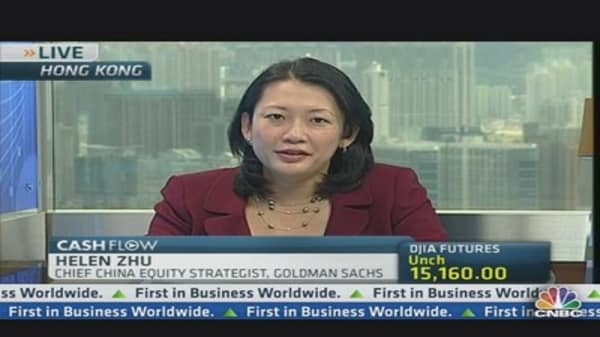Weak trade data for China has left investors expecting more doom and gloom with next week's release of second-quarter numbers, and according to Lombard Street Research, the world's second-largest economy could shock markets with a quarter-on-quarter contraction in gross domestic product (GDP).
"Global markets could be due for a shock," Charles Dumas, an economist at Lombard Street Research said in a research note on Wednesday.
"Assuming the trade data are taken at face value, rather than some obscure adjustment being needed for the dodgy data vis-a-vis Hong Kong, there is an even chance that on our estimation procedure next week's real GDP will be down rather than up from [first quarter]," he said.
Monday's GDP data will be keenly watched by investors aware that the days of double digit growth are firmly behind China. A Reuters poll predicts a 1.8 percent quarter-on-quarter rise and a 7.5 percent rise on a yearly basis. That would be slowest pace of growth (year-on-year) since the third quarter of last year. But Dumas believes these figures could be generously overstated.
(Read More: Why China Delivered Such a Big Miss in Trade Data)
"This is not surprising, given the trade data, as the previous period of slumping exports, in the financial crisis, was not all that much more severe than the past few months."
Data showed on Wednesday that China's exports in June fell 3.1 percent from a year ago, marking the first decline since January 2012. The figures were well below expectations in a Reuters' poll for a rise of 4 percent.
Imports also missed by a wide margin, declining 0.7 percent year-on-year in June, compared to a forecast of a rise of 8 percent, and worse than the 0.3 percent drop in May.





